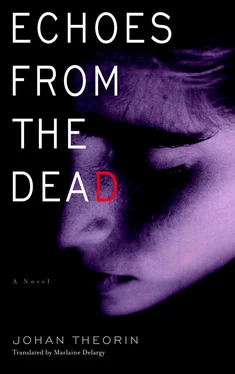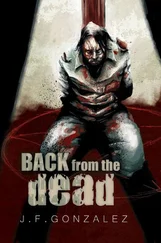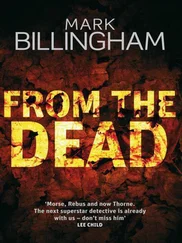As far as he knows, there is only one photograph of him in existence, and it’s six or seven years old: a group photograph from school, with Nils standing in the back row, his eyes shadowed by his cap. It’s blurred and Nils doesn’t even know if the police have it, but he still wants to make sure he’s completely unrecognizable.
The street below the park is above the docks, and is one of the most miserable in Gothenburg, more mud and dust than cobbles, and the unpainted wooden houses seem to be leaning on each other to avoid falling down. Nils Kant fits in here, with his beard and his secondhand suit and his slicked-back hair. He looks poor, but he doesn’t look like a criminal. At least he hopes not.
Much of his flight from Öland has been about fitting in, preferably not being seen, and definitely not drawing attention to himself.
Nils found it difficult to leave the Baltic coast, where he could catch glimpses of his island through the fir trees. He hung around close to Uncle August’s sawmill, and it wasn’t until the third morning, when he saw a police car parked outside the office, that he set off toward the west.
Straight into the dense forest.
He was used to walking long distances from his time out on the alvar, and good at finding the right direction with the help of the sun and his intuition.
During June he walked through the countryside, one of many young men on their way to bigger towns and new opportunities after the war, and he didn’t attract much attention. Few people even saw him. He avoided the roads, moved through the forest, ate berries and drank water from the streams, and slept under a tree or in a barn if it was raining. Sometimes he found apples growing wild; sometimes he sneaked onto a farm and stole some eggs or a jug of milk.
His stock of Vera’s butter toffees had run out by the third day.
In Huskvarna he stopped for a few hours to have a look at the town where his shotgun had been made, but he couldn’t find the gun factory, and didn’t dare ask anyone where it was. Huskvarna felt almost as big as Kalmar, and the neighboring town of Jönköping was even bigger. Even though his suit smelled of sweat and the forest, there were enough people out on the streets for him to walk around without anyone staring at him.
He even dared to eat in a restaurant and buy a new pair of walking shoes. A good pair of shoes cost exactly thirty-one kronor from the reserve of money his mother had given him, topped up by his Uncle August. His cash was dwindling, but he still went into a little bar near the railway and ordered a big steak, a pilsener, and a small glass of Grönstedt’s cognac, which cost two kronor and sixty-three öre altogether. Expensive, but Nils felt he’d earned it after his long trek.
Fortified by his visit to the bar, he left Jönköping behind him and kept moving west through the forests of Västergötland for a few more weeks. Finally, he reached the coast.
Gothenburg is Sweden’s second-largest city; Nils learned that at school. Gothenburg is enormous: block after block of tall buildings along the river Göta, hundreds of vehicles on the streets, and all kinds of people. At the beginning all the people around him almost made Nils panic, and for the first few days he kept getting lost. On the streets around the docks he has heard foreign languages, from seamen from England, Denmark, Norway, and Holland. He has watched ships set sail for foreign ports, or slowly heave to at the quayside, laden with cargoes from other lands. For the first time in his life he has eaten a banana; it was almost black and slightly rotten, but it still tasted good. A banana from South America.
Everything on the docks is huge compared with the harbors on Öland, big and different. Rows of derricks for loading and unloading cargo are silhouetted against the sky like great black prehistoric creatures, and tugboats churn out thick gray smoke as they move between the great white Atlantic steamers out in the channel. In the port of Gothenburg, sails and masts have more or less disappeared; now ranks of propeller-driven cargo ships line up at the quays.
Nils has walked by the waterside, studied the long hulls, and thought about the bananas in South America.
He spends as little time as possible in the scruffy room at the boardinghouse for single men; he comes home late and gets up early. He doesn’t miss the bitterly cold nights lying on moss and twigs in the forest, but when he is lying in bed the walls around him feel like a cell, and he is listening for the heavy tread of the police on the stairs the whole time.
One night the door of his room opened, and the substantial figure of District Superintendent Henriksson walked into the room in full uniform. His clothes were soaked in blood. He stretched out his hand, dripping red with blood, toward the bed.
You murdered me, Nils. And now I’ve found you.
Nils shot out of bed, his teeth clenched. The room was empty.
He has sent just one postcard to Vera during his time in Gothenburg. A black-and-white card with a picture of Vinga lighthouse on the front. Nils sent it all the way across the country to Stenvik, without putting his name on it, or even writing a message. He daren’t let his mother know anything more than the fact that he’s still free and somewhere on the west coast, but he thinks that’s enough.
A young man has come into the park now. He’s about the same age as Nils, and his name is Max.
The first time Nils saw him was three days earlier at a little café by the docks; Max was sitting in a corner a couple of tables away from Nils. It was easy to spot him, as he was smoking cigarettes from a gold case and talking loudly in a broad Gothenburg accent, to the waitresses, to the smiling owner of the café, and to other customers. Everybody called him Max. Sometimes visitors came in off the street and sat down at his table, young and elderly men who spoke quietly. Then Max lowered his voice as well, and the conversation was conducted with gestures and a rapid exchange of sentences.
Max was selling something, that much was obvious, and since he never handed anything over to those who visited his table, Nils guessed that he was selling information and good advice. So after an hour or so Nils got up and went over to the corner table himself. Closer, he could see that Max was even younger than he was, with greasy hair and a spotty face. But his expression was alert as he listened to Nils.
It felt strange to sit and talk to a stranger after such a long time alone, but it was all right. Just as quietly as the others who had sat at the table, without giving his name, he asked for some particularly good advice. And he wanted Max to do something for him — something important. Max listened and nodded.
“Two days,” he said.
That was the time he needed to carry out the important task.
“I’ll give you twenty-five kronor,” said Nils.
“Thirty-five would be better,” the young man said quickly.
Nils thought about it. “Thirty, then.”
Max nodded and leaned forward. “We won’t meet here again,” he said, even more quietly. “We’ll meet in a park... a good park I often use.”
He told Nils where to find it, then got up and quickly left the café.
And now Nils is standing in the park, waiting. He’s been here for half an hour, walked round and checked that the park is completely empty, and found two different escape routes in case something should go wrong. He never told his new acquaintance his name, but he’s sure Max quickly realized that Nils is wanted by the police.
The young man comes straight up to him without glancing around or signaling to any unseen observers.
This doesn’t make Nils relax, but he doesn’t run away either. He stares at Max, who has stopped a yard or so in front of him.
Читать дальше












